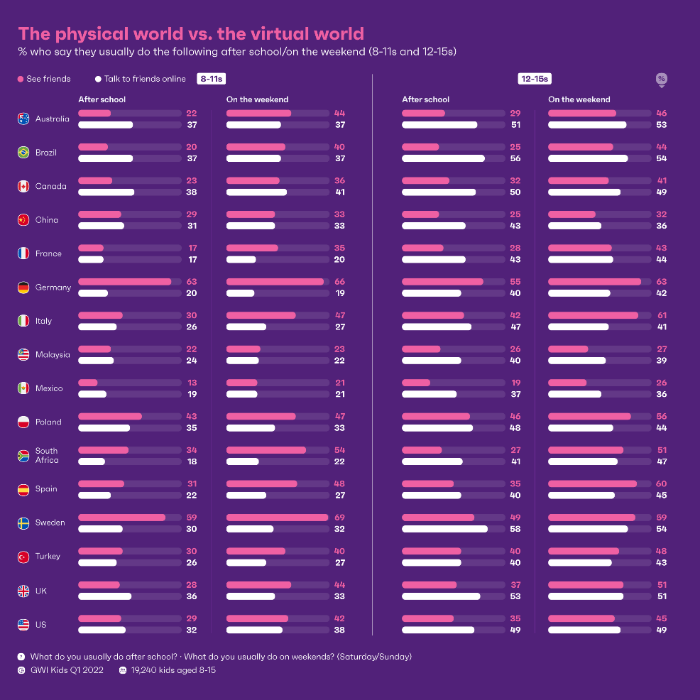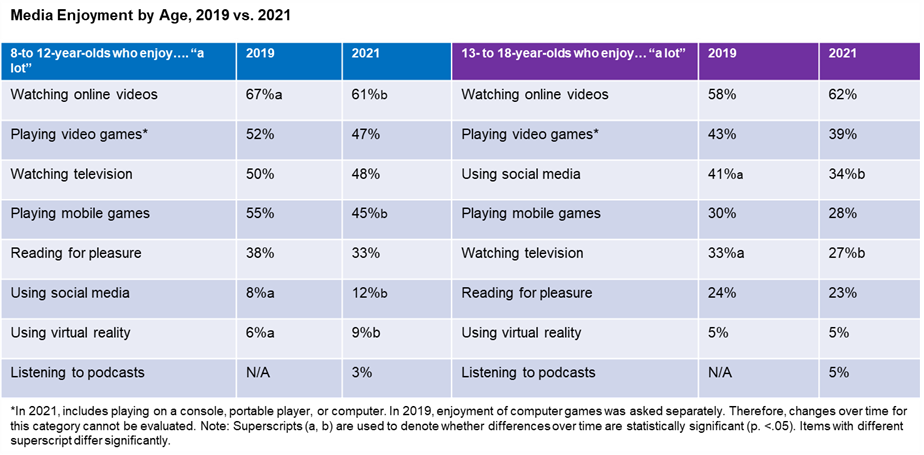A curious thing seems to be happening among today’s tween cohort: they are seeking to possess artefacts that my generation (Gen X) forgot or discarded long ago as the digital age overtook our lives.
In recent weeks, I have accompanied my 12-year-old daughter to the few remaining shops in Hong Kong that still sell CDs to buy, of all things, Taylor Swift albums. That the music of the world’s biggest pop star du jour would be sought after by the youngest members of Generation Alpha in retro form is a surprising phenomenon in the age of Spotify.
What is Generation Alpha (defined here as those born from 2010 onwards) – digital-first consumers that they are – trying to tell us here? How will this generation change what and how content is consumed, especially amid the rise of generative artificial intelligence (Gen AI)?
The closest thing we have to a crystal ball for predicting the future is data, which indicate a nuanced shift in how Gen Alpha wants to lead their lives and be entertained – with potentially major implications for the future adoption of today’s emerging technologies.
Gen Unplugged
Gen Alpha may be born with the latest technology at their fingertips, but it doesn’t mean they are readily accepting of the digitalised world they live in. They appear to be able to get off the online conveyor belt and social media hamster wheel and engage in real-world interactions. A 2023 global survey by GWI, a market research firm, showed that more Gen Alpha kids (43%) say they see their friends on the weekend compared to those who say they talk to them online (39%). Another survey by marketing agency Razorfish echoes this attitude, with nearly three-quarters of US-based Gen Alpha – already mindful of their mental health – saying they prefer to go outside and disconnect from tech.
“Look Ma, I’m offline”
An event that helped spoil the online experience for this demographic is the Covid-19 pandemic. As the GWI report notes, screen fatigue from digital overexposure during the years spent under lockdown and cut off from interacting physically with people outside their so-called pods is to blame for this shift.

Source: GWI
Has social media lost its spark?
Scarred by the pandemic and having seen for themselves the downsides of social media from the experiences of their elders, Gen Alpha may yet turn out to be the most astute generation of consumers.
They are likely to approach content and platforms with greater scepticism and awareness than Gen Z or Millennials. While Millennials embraced social media for its novelty and Gen Z mastered the creator economy, Gen Alpha is signalling that they are not necessarily tethered to social media as these earlier generations are. A survey by Wunderman Thompson Commerce in the UK and US found that only 5% of Gen Alpha respondents ranked social media as most important in their lives and only 2% of them said fame – think Insta influencers and YouTube celebrities – is most important.
A 2021 report from Common Sense, a US nonprofit focused on children and families, found that just 12% of Gen Alpha tweens say they enjoy using social media “a lot” compared to 23% of younger Gen Zs. Some 25% of the oldest members of Gen Alpha say it would be very easy for them to give up social media, compared to 16% of the youngest members of Gen Z. [See table below]
It might be premature to conclude that this is the end of social media influencers. Rather, the diminished appeal of social media for Gen Alpha could clear the way for other platforms to gain a following among this audience.
So, what do Gen Alpha enjoy doing?
While they wait for these future breakthroughs, Gen Alpha tweens and teens are keeping themselves entertained by playing video games, watching television, and (gasp!) reading (see chart below).

Source: Common Sense Media
One thing that’s apparent is that, like the generations before them, Gen Alpha want good content, and mostly in the form of videos. But unlike previous generations, they appear to approach other forms of content somewhat differently. As GWI observed: Since 2021, there’s been a 4% drop in interest in books among Gen Alpha, but a 75% increase in those who say they’re interested in audiobooks, a more flexible way of consuming the written word.
This suggests that marketers need to be more creative in reimagining how “old” content can be delivered differently so it appeals to Gen Alpha. In addition, while the kids like to watch videos online for entertainment, they seem also keen about TV or going to the movies, demonstrating the importance of reaching out to them at various touch points beyond the default online platforms.
AI and Gen Alpha
As the generation that will come of age in the era of Gen AI, Gen Alpha might well be the arbiter of AI’s role in society. Today, Gen Zs are at the receiving end of the rise of AI-generated influencers and nefarious applications such as deep fake nudes. But as the AI-powered manipulation of content becomes more sophisticated, it might emerge as one more reason for Gen Alpha to push back on the “digital overwhelm” and seek a healthy balance between online and real-world experiences.
How to convey trust and authenticity will be the challenge for brands and corporations to reckon with in the years to come as today’s children gain spending power. Brands and platforms will have to work hard to strike a balance between the use of technology for targeted marketing and Gen Alpha’s attitudes towards privacy. It might also force marketers to more carefully consider the use of AI. Already companies have emerged to help these young consumers gain control over their own data and monetise them on their own terms.
Whether Gen Alpha’s cooling attitudes towards social and other media and their content are here to stay or are just a kneejerk reaction to the excesses of the pandemic era remains to be seen. But it is worth pondering what these findings mean for future consumer engagement efforts. One thing is for sure, it won’t be the same playbook we’re using today.
World-class communications strategy and execution
Contact us to get started